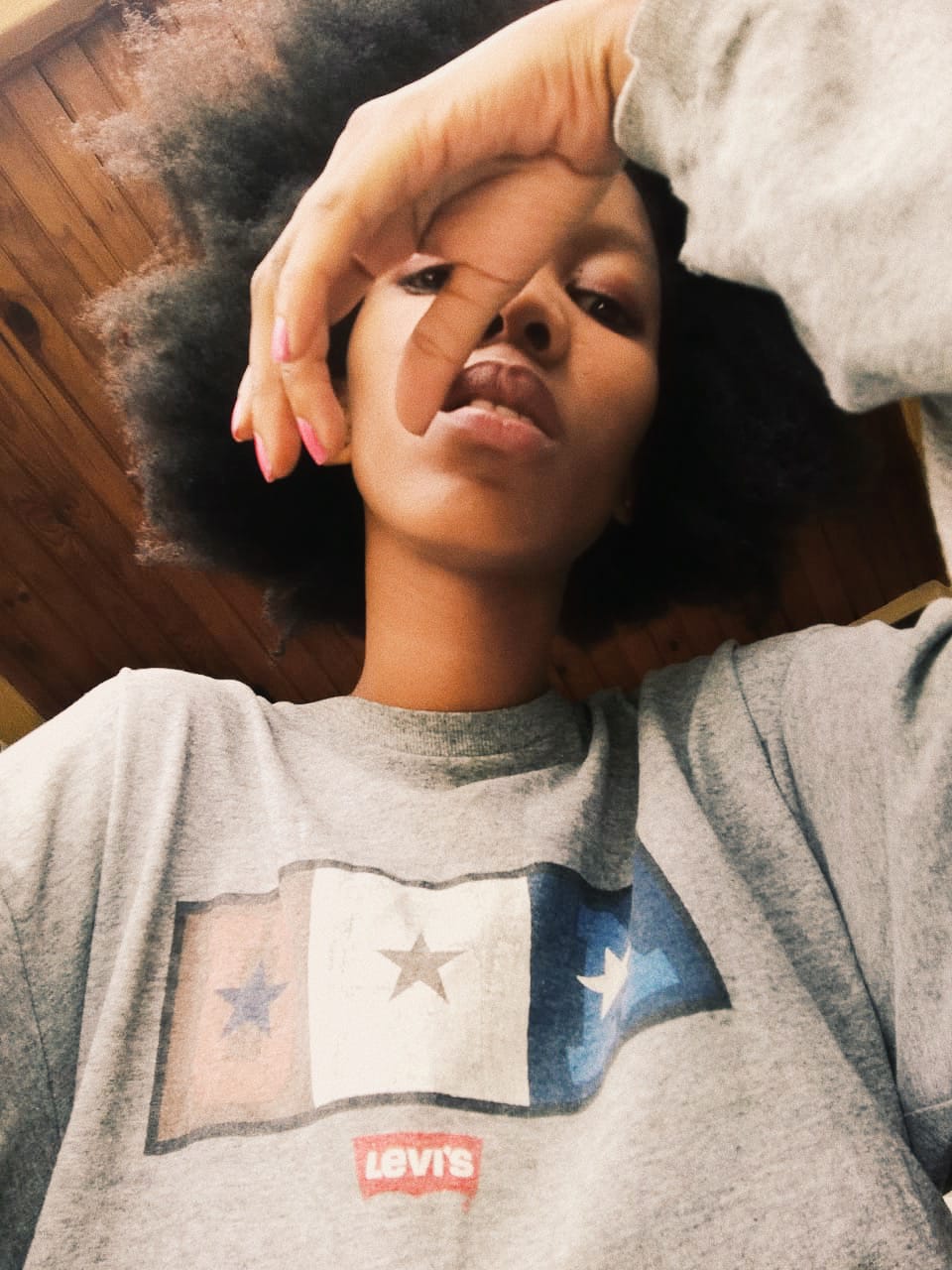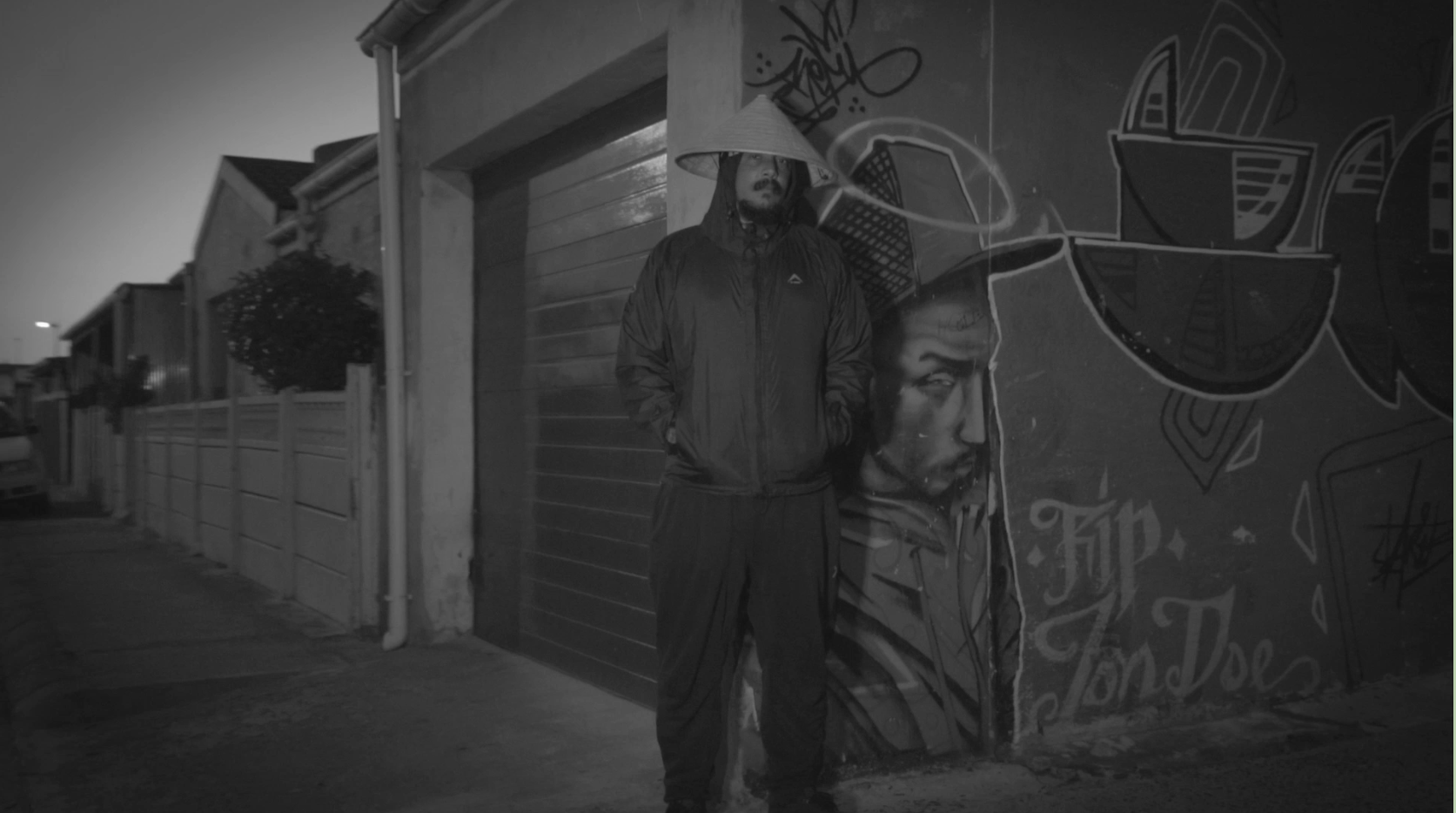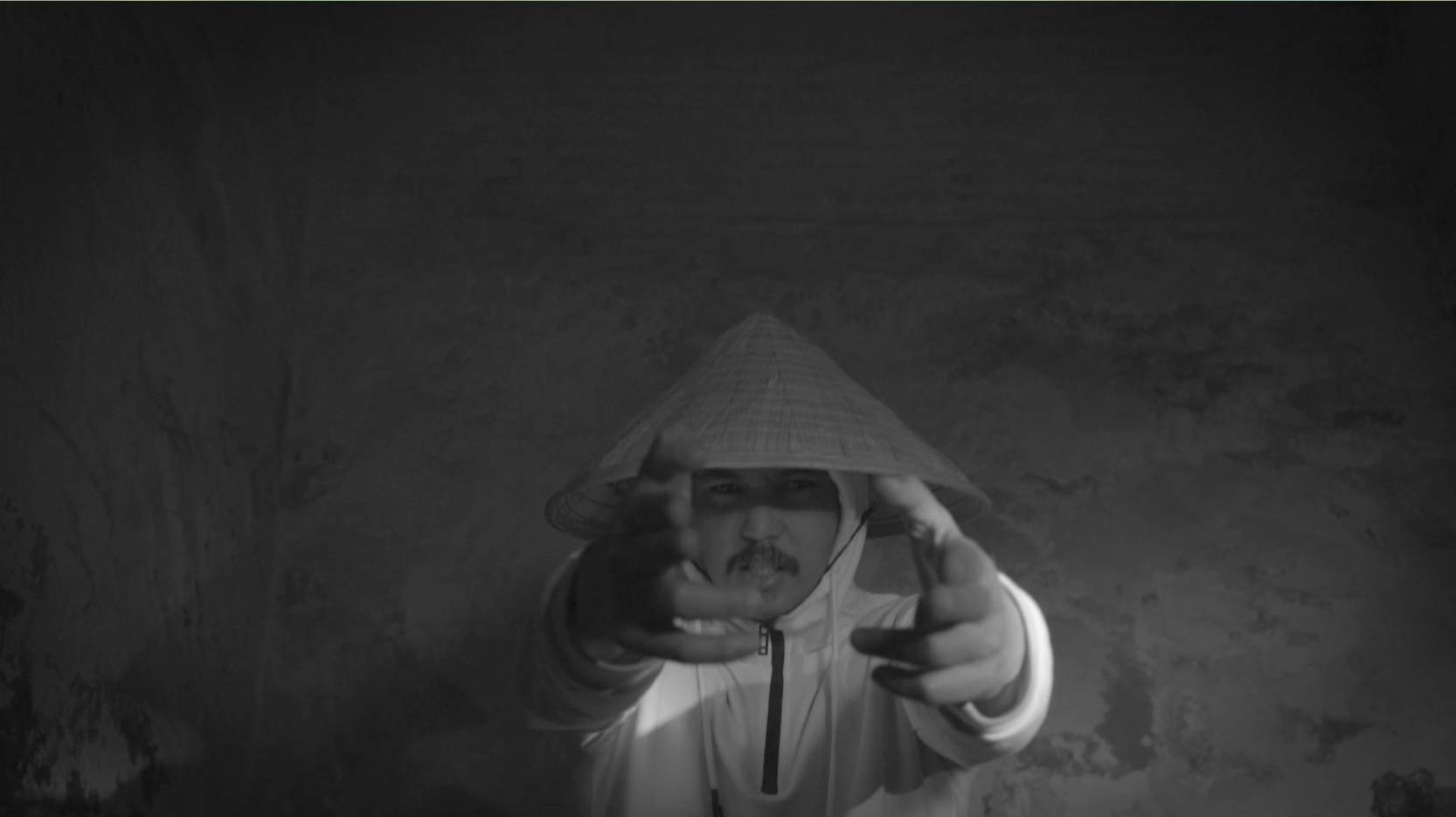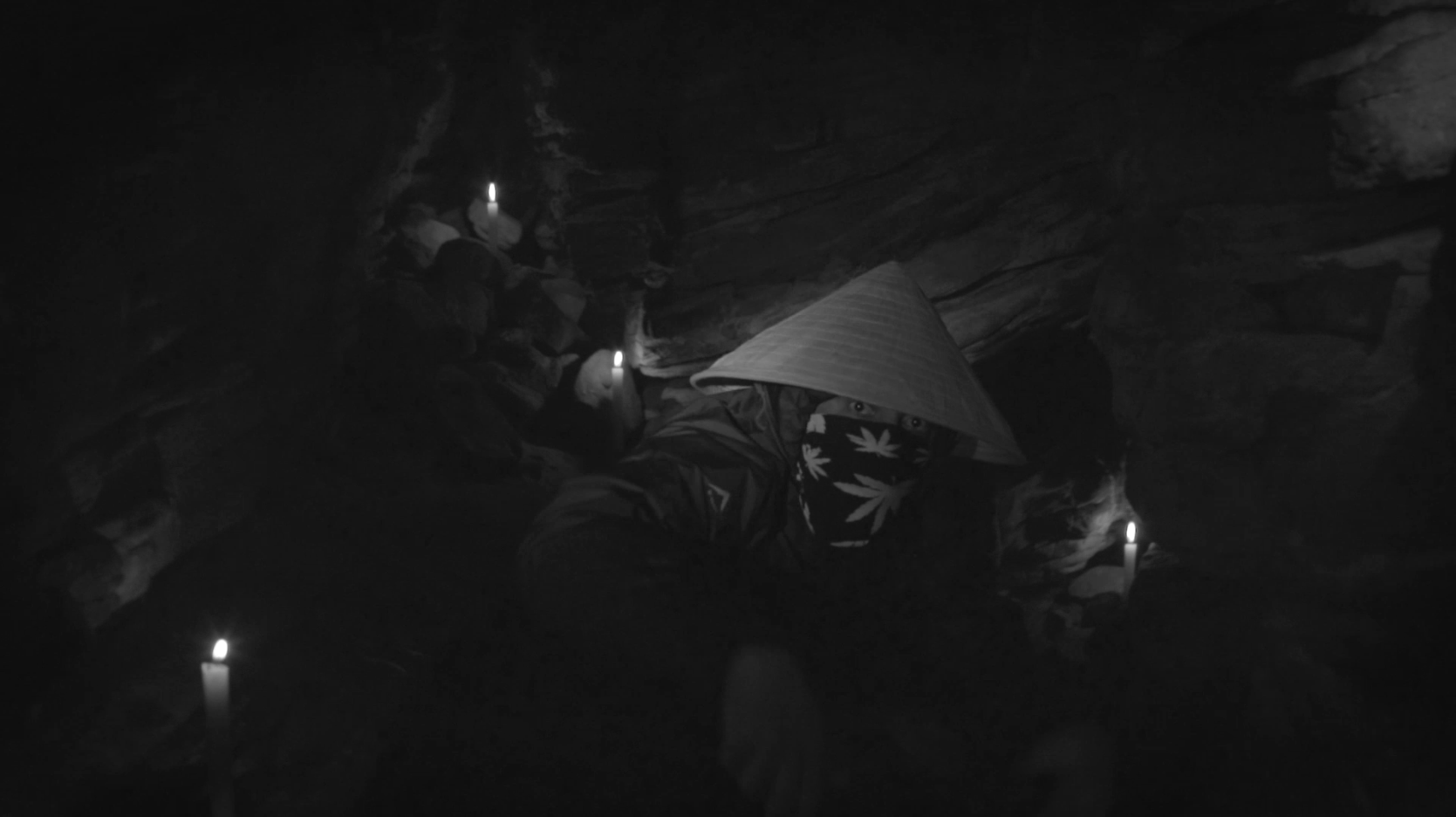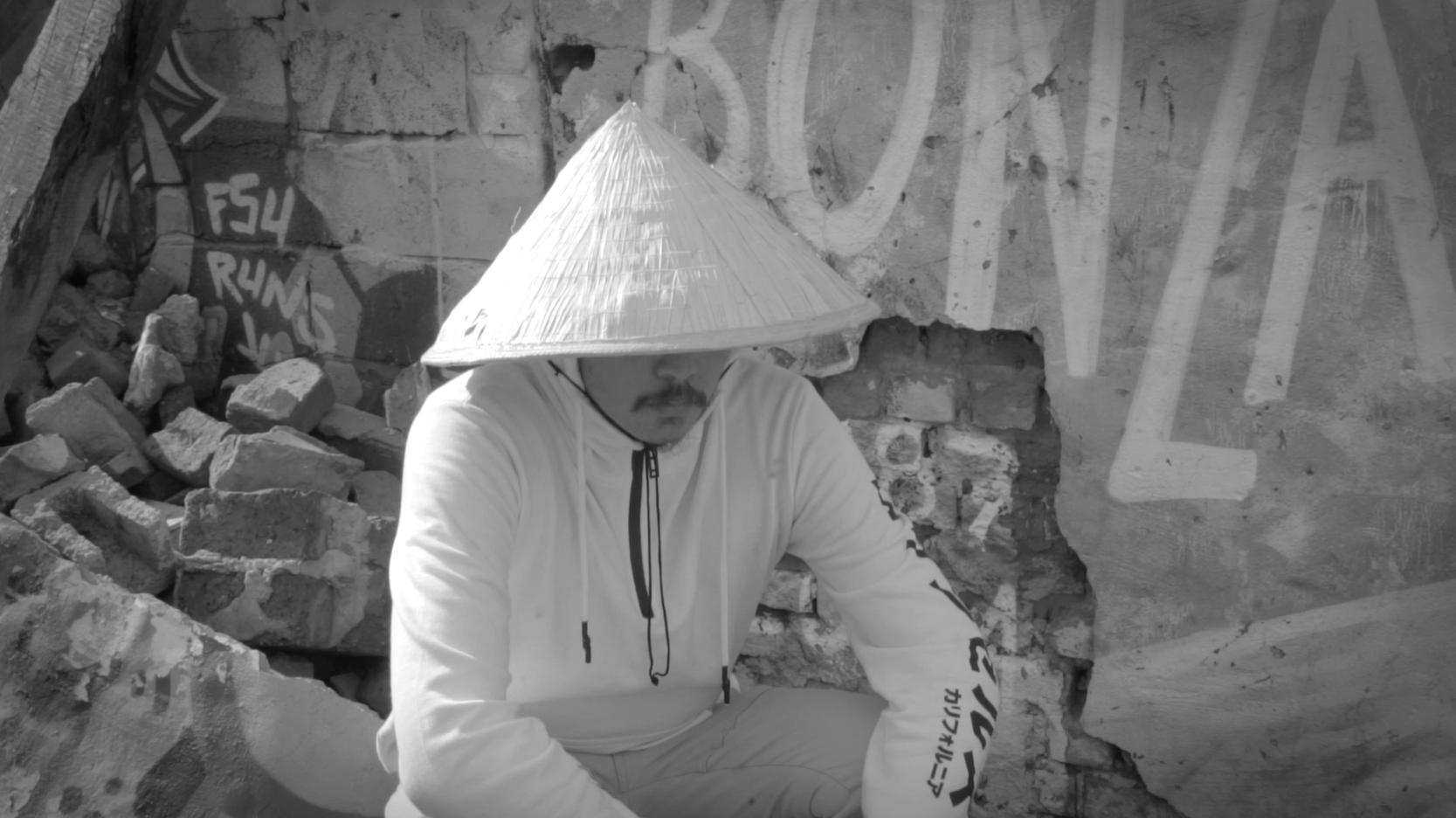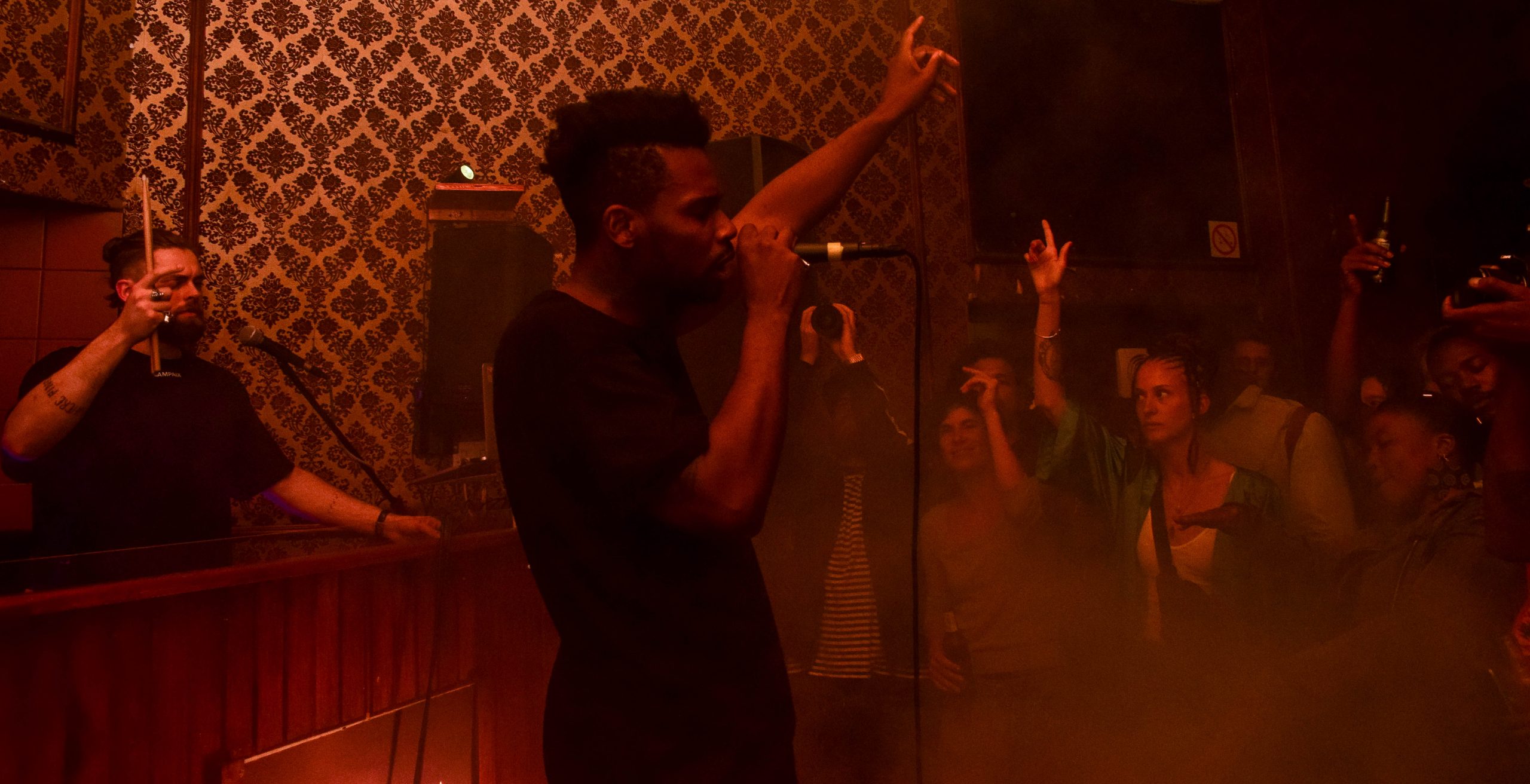Built in 1902 Kitcheners (KCB) has been the general stomping ground for generations upon generations of creatives, artists and students alike. Famed as the second oldest building in the city, there is no one occupant of this city who doesn’t know about it. It is more than fitting then that Gaika would perform the Johannesburg leg of his tour at this historic venue.
Arriving prior to the show, at 18:30 sharp for my interview with him it was eminent that nothing about KCB changes. The built-in upholstered cushioning that surrounds the dance room has reached the end of its lifetime of elegance and is peeling at the seams, presumably due to countless back and bottom harassment from eager party goers. As I walked into the crowded dance floor space the media was closed in by means of the glass and wooden door room dividers. Flashbacks from my student days spent body against body grinding out to some of South Africa’s best local talent all came rushing back to me as my feet stuck to the sticky floor and a minor sweat temporarily took hold of me.
There he was, locked in a video interview as I waited patiently for my turn to speak to the underground London-based artist. Camo pants, nude Nikes, a white top and a denim shirt loosely styled made up his attire. His demeanour was different from his music. He was calm, relaxed, open, and inviting. Unlike his experimental rap that oozes with pointed criticism on society and a near dystopian future. My turn finally arrived and he smiled at me with kindness, shaking my hand for an official introduction.
I took a seat next to him and in conversation, I saw a personal side to the artist I had never heard in his lyrics or seen published in any article. A visitor to South Africa for the second time in his life he shared with me that his visit was vastly different from the first he made as a child. Describing it as an emotional experience, Gaika tells me that the decision to embark on this tour was greatly motivated by his need to travel to the furthest place.
With an ability to partake in an intimate conversation, and seconds later retort with aloofness, I asked him about what he would perform for us that evening. “My records.” He told me as I tried to flesh out more. “I don’t want to ruin the magic so you’ll have to find out.”
He described his passage into music, “I fell into it really. I always wanted to be around music. I was a visual artist and around musical culture and one day I just decided I want to make music and just got lucky that opportunities arose for me to do that. I was never a kid with a hair brush in the mirror like I wanted to be a singer. My dad got sick and I just decided that you only live once and you’ve got to follow some of the things that you are too scared to follow. Or too scared to try and so I did and I’m quite committed. I want to do it properly. I don’t want to half do things.”
What stuck with me most was his response to what inspires him “Everything and nothing”. After some prying, he tells me that the sounds of early 80s and 90s film music act as an influence that he can recreate and interpret in his own way. It is as though Gaika finds comfort and inspiration from sounds of his early childhood or as he likes to call it, “kid music”. He does, however, caution by stating that, “I’m not really aware of influences”.
Dark musical undertones, otherworldly hard-hitting bass and sharp criticism found in his lyrics got me to the question of a possible pessimistic outlook. He responds to me confidently “No that isn’t true. I’m an optimist and a realist. I say it like it is. If it’s uncomfortable it’s uncomfortable. I don’t think I focus on negatives in my life. In my music that can be quite a criticism of energy that I bring out. Things can only get better from confronting what’s wrong in the first place.”
In parting, he shares with me that he would enjoy another tour like this in the future. The evening draws on as the dance floor greets sets by Rosie Parade and Kajama. 23:00 and the underground thunder of Gaika breaks loose. His sound intoxicates not only KCB but the streets in its surrounds.
His outfit has changed. Dressed in all black his music seems to inhabit every human form on the dance floor. The bass amplified and clinical leave my teeth on a near clatter. As he jumps and dances and throws his arms, so the crowd follows in imitation. The music in my bones, in all the life forms stacked on the dance floor, and in the old floorboards of KCB during his performance was so abundant that keeping my camera stable was a balancing act in itself. Gaika spits his lyrics with such intensity it makes his lyrics come across as dogmatic, with synchronized rhythmic bodies as followers of his sonic dogma. His ‘Security’ album takes hold of us and he asks, he pleas for a future of equality. Seeing Gaika live at KCB was nothing short of extraordinary. His vigour for his experimental practice will forever live on in my memory.
